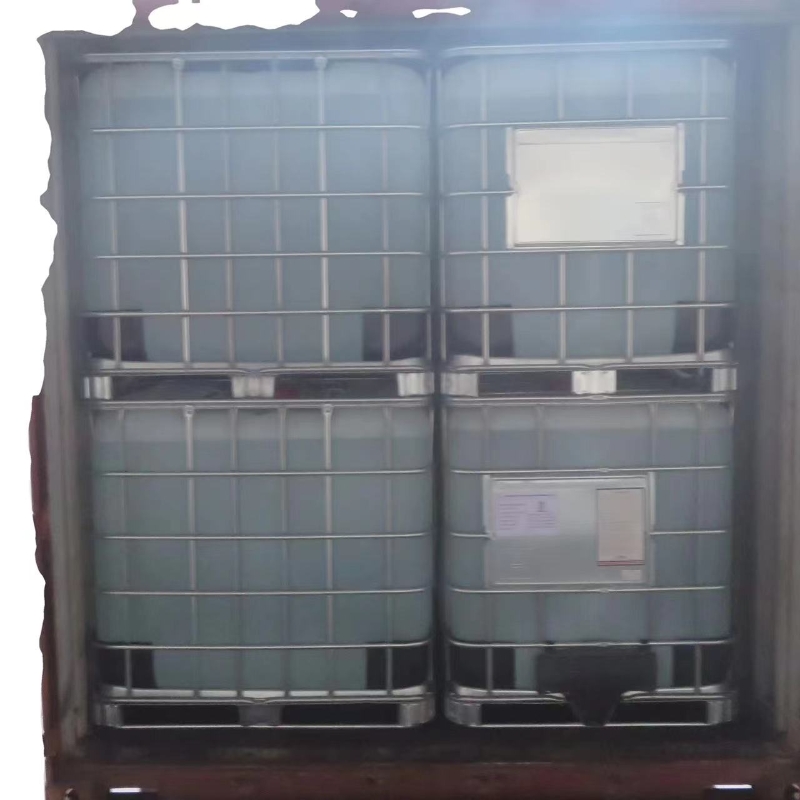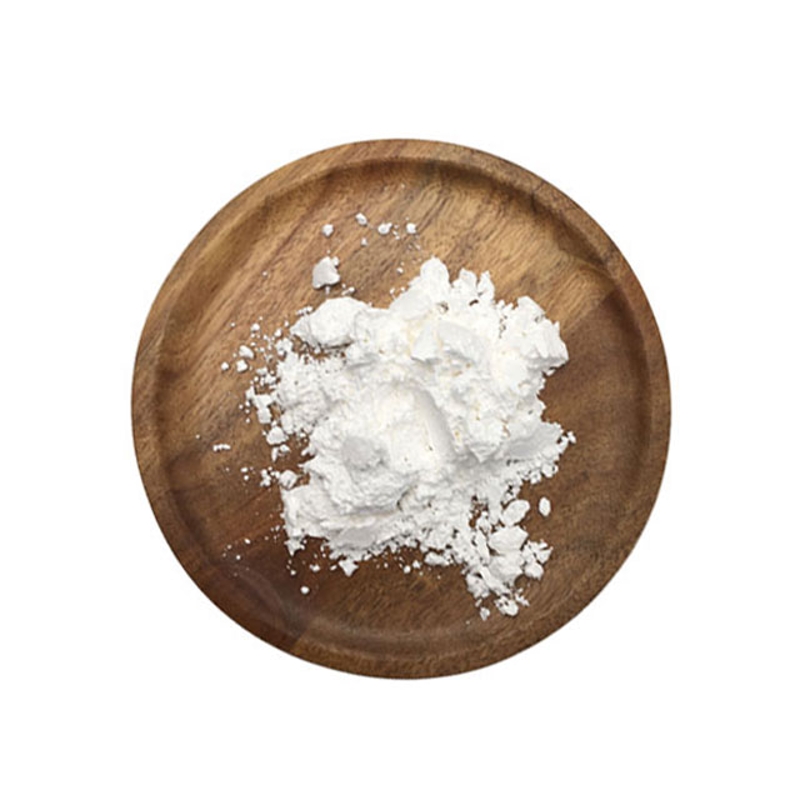-
Categories
-
Pharmaceutical Intermediates
-
Active Pharmaceutical Ingredients
-
Food Additives
- Industrial Coatings
- Agrochemicals
- Dyes and Pigments
- Surfactant
- Flavors and Fragrances
- Chemical Reagents
- Catalyst and Auxiliary
- Natural Products
- Inorganic Chemistry
-
Organic Chemistry
-
Biochemical Engineering
- Analytical Chemistry
- Cosmetic Ingredient
-
Pharmaceutical Intermediates
Promotion
ECHEMI Mall
Wholesale
Weekly Price
Exhibition
News
-
Trade Service
Compiled and organized by Yimaitong, please do not reprint without authorization
.
The rise of antimicrobial resistance (AMR) remains a global crisis, and the treatment of AMR-resistant infections has been a clinical challenge
.
The Infectious Diseases Society of America (IDSA) recently issued additional guidelines for the treatment of antibiotic-resistant Gram-negative bacterial infections, mainly for extended-spectrum β-lactamase-producing Enterobacter (ESBL-E), carbapenem-resistant Enterobacter (CRE) and the management of refractory and drug-resistant Pseudomonas aeruginosa (DTR-P.
aeruginosa) infections
.
Extended-spectrum β-lactamase-producing Enterobacter (ESBL-E) nitrofurantoin and trimethoprim-sulfamethoxazole are the preferred treatment options for ESBL-E-induced simple cystitis
.
Ertapenem, meropenem, imipenem-cilastatin, ciprofloxacin, levofloxacin, or trimethoprim-sulfamethoxazole are ESBL-E-induced pyelonephritis and complicated urinary tract infections (cUTIs) preferred treatment options
.
Carbapenems are the drugs of choice for the treatment of ESBL-E-induced extra-urinary tract infections
.
After an appropriate clinical response is achieved, if susceptibility is demonstrated, a switch to an oral quinolone or trimethoprim-sulfamethoxazole should be considered
.
If piperacillin-tazobactam was initially used as an empiric therapy for uncomplicated cystitis later confirmed to be caused by ESBL-E and clinical improvement occurs, no change or extension of antibiotic therapy is required
.
The panel recommends carbapenems, fluoroquinolones, or trimethoprim-sulfamethoxazole rather than piperacillin-tazobactam for ESBL-E pyelonephritis and cUTI
.
Even if susceptibility to piperacillin-tazobactam is demonstrated, this drug is not recommended for the treatment of extra-urinary infections caused by ESBL-E
.
Even if susceptibility to cefepime is demonstrated, the drug is not recommended for the treatment of non-urinary tract infections caused by ESBL-E
.
If cefepime is initially used as empiric therapy to treat uncomplicated cystitis later confirmed to be caused by ESBL-E and there is clinical improvement, no change or extension of antibiotic therapy is required
.
The panel recommends avoiding cefepime for pyelonephritis and cUTI
.
Cefepime is also not recommended for the treatment of extra-urinary tract infections caused by ESBL-E, even if susceptibility to the drug has been demonstrated
.
Cephamycin is not recommended for the treatment of ESBL-E infections until more data on clinical outcomes of cefoxitin or cefotetan are available and an optimal dose can be determined
.
Carbapenem-resistant Enterobacteriaceae (CRE) ciprofloxacin, levofloxacin, trimethoprim-sulfamethoxazole, nitrofurantoin, or single-dose aminoglycosides are the preferred treatment options for CRE-induced simple cystitis
.
When carbapenemase test results are unavailable or negative, standard infusion meropenem is ertapenem-resistant (ie, ertapenem MICs ≥ 2 mcg/mL) but meropenem-susceptible (ie, ertapenem MICs ≥ 2 mcg/mL) The preferred treatment for CRE-induced cystitis with ropenem MICs ≤ 1 mcg/mL)
.
Ceftazidime-avibactam, meropenem-faborbactam, imipenem-cilastatin-rabactam, or cefdil can be used as alternatives for uncomplicated CRE cystitis if none of the first-choice drugs are ineffective
.
Ciprofloxacin, levofloxacin, and trimethoprim-sulfamethoxazole are the preferred treatment options for CRE-induced pyelonephritis and cUTI if drug susceptibility is demonstrated
.
When carbapenemase test results are unavailable or negative, extended infusion of meropenem is treated for ertapenem-resistant (ie, ertapenem MICs ≥ 2 mcg/mL) but meropenem-sensitive ( Namely, the preferred treatment for CRE-induced pyelonephritis and cUTIs with meropenem MICs ≤1 mcg/mL)
.
Ceftazidime-avibactam, meropenem-faborbactam, imipenem-cilastatin-ribactam, or cefdil are also ertapenem- and meropenem-resistant CRE-induced pyelonephritis and cUTIs preferred treatment options
.
When carbapenemase test results are unavailable or negative, extended infusion of meropenem is indicated for ertapenem-resistant (ie, ertapenem MICs ≥ 2 mcg/mL) but meropenem-susceptible (ie, ertapenem MICs ≥ 2 mcg/mL) The preferred treatment for CRE-induced extra-urinary infection with ropenem MICs ≤ 1 mcg/mL)
.
Ceftazidime-avibactam, meropenem-faborbactam, imipenem-cilastatin-rabactam are therapeutic options for ertapenem when carbapenemase test results are unavailable or negative.
(ie, ertapenem MICs ≥ 2 mcg/mL) and meropenem (ie, meropenem MICs ≥ 4 mcg/mL) resistant CRE-induced extra-urinary tract infection
.
For patients with CRE infection who have been treated within the past 12 months in a country with a relatively high prevalence of metallo-beta-lactamase-producing microorganisms, or for whom a metallo-beta-lactamase-producing isolate has been identified in clinical or surveillance cultures , if no carbapenemase test results, the preferred treatment options include ceftazidime-avibactam combined with aztreonam or cefdil monotherapy
.
Meropenem-faborbactam, ceftazidime-avibactam, imipenem-cilastatin-ribactam are the preferred treatment options for extraurethral KPC bacterial infection
.
Ceftazidime-avibactam in combination with aztreonam or cefdil alone is the treatment of choice for New Delhi metallo-beta-lactamase (NDM) and other metallo-beta-lactamase-producing bacterial infections
.
Ceftazidime-avibactam is the treatment of choice for OXA-48-like infections
.
The presence of resistance to all of the new beta-lactams used to treat CRE infections needs attention, but resistance to ceftazidime-avibactam appears to be the most frequent
.
While beta-lactams remain the drug of choice for the treatment of CRE infections, tigecycline and enlacycline are alternatives when beta-lactams are ineffective or intolerable
.
Tetracycline derivative monotherapy is not recommended for CRE-induced UTIs or bloodstream infections
.
Avoid using polymyxin B and colistin for CRE-induced infections
.
Colistin may be considered as an alternative for the treatment of uncomplicated CRE cystitis
.
Combination antibiotic therapy (eg, beta-lactams in combination with aminoglycosides, fluoroquinolones, or polymyxins) is not routinely recommended for CRE-induced infections
.
Refractory-resistant Pseudomonas aeruginosa (DTR-P.
aeruginosa) when P.
aeruginosa isolates are resistant to traditional non-carbapenem β-lactam drugs (ie, piperacillin-tazobactam, ceftazidime , cefepime, aztreonam), these drugs are better than carbapenems
.
When Pseudomonas aeruginosa isolates are not sensitive to carbapenems, but are sensitive to traditional β-lactams, after confirming the results of the drug susceptibility test, it is recommended to use traditional drugs for high-dose long-term infusion treatment
.
In patients with moderate to severe disease or with Pseudomonas aeruginosa infections of refractory origin, newer beta-lactams (eg, Ceftolozane) should be used when carbapenem-resistant but sensitive to conventional beta-lactams /tazobactam, ceftazidime-avibactam, imipenem-cilastatin-rabactam) are also a reasonable treatment option
.
Ceftolozane-tazobactam, ceftazidime-avibactam, imipenem-cilastatin-rabactam, cefdil, or single-dose aminoglycosides are treatment-refractory-resistant Pseudomonas aeruginosa caused by of choice for uncomplicated cystitis
.
Ceftolozane-tazobactam, ceftazidime-avibactam, imipenem-cilastatin-rabactam, and cefdil are the preferred regimens for the treatment of DTR-P.
aeruginosa-induced pyelonephritis and cUTI
.
Ceftolozane-tazobactam, ceftazidime-avibactam, imipenem-cilastatin-rabactam monotherapy is the preferred regimen for extra-urinary tract infection caused by DTR-P.
aeruginosa
.
Emergence of resistance to novel β-lactams used to treat DTR-P.
aeruginosa infections needs attention, with Ceftolozane-tazobactam and ceftazidime-avibactam appearing to have the highest frequency
.
If in vitro susceptibility to first-line antibiotics (eg, Ceftolozane-tazobactam, ceftazidime-avibactam, imipenem-cilastatin-rabactam) has been demonstrated, Infection, combined antibiotic therapy is not recommended routinely
.
For respiratory tract infections caused by DTR-P.
aeruginosa, the panel does not recommend routine addition of aerosol antibiotics
.
Reference source: Tamma PD, Aitken SL, Bonomo RA, Mathers AJ, van Duin D, Clancy CJ.
Infectious Diseases Society of America Antimicrobial-Resistant Treatment Guidance: Gram-Negative Bacterial Infections.
Infectious Diseases Society of America 2022; Version 1.
1.







